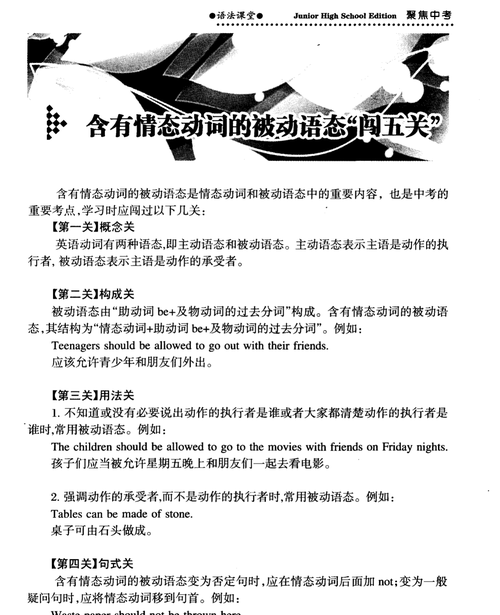在英语中,含情态动词的被动语态用于表示意愿、能力、可能性等。例如,“can”用于表示能力,如“这个问题可以由我们的团队解决”;“could”表示可能性,如“这个项目可以在这个月底完成”;“may”表示可能性,如“这个包裹今天可能会送到”;“might”表示可能性,如“这场音乐会的门票可能很快会售罄”;“must”表示必要性,如“这份报告必须在截止日期之前完成”;“should”表示建议,如“这项任务应该分配给有经验的人”。

can
- The problem can be solved by our team. (我们的团队可以解决这个问题。)
- The book can be read by anyone. (这本书可以被任何人阅读。)
could
- The letter could be sent tomorrow. (这封信明天可以寄出。)
- The project could be completed by the end of this month. (这个项目可以在这个月底完成。)
may
- The package may be delivered today. (这个包裹今天可能会送到。)
- The meeting may be cancelled due to bad weather. (会议可能因为天气不好而取消。)
might
- The concert tickets might be sold out soon. (这场音乐会的门票可能很快会售罄。)
- The proposal might be rejected by the board. (这个提案可能会被董事会拒绝。)
must
- The report must be finished before the deadline. (这份报告必须在截止日期之前完成。)
- The rules must be followed by all members. (所有成员必须遵守规定。)
should
- The task should be assigned to someone with experience. (这项任务应该分配给有经验的人。)
- The problem should be solved as soon as possible. (这个问题应该尽快解决。)
